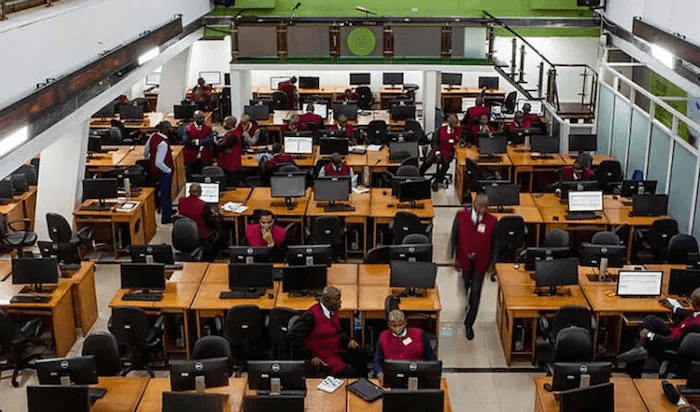Dike Onwuamaeze
Following the recent move by some trade unions to cripple operations at the Dangote Petroleum Refinery, the Center for the Protection of Private Enterprise (CPPE) has called on the federal government to enact an Investor and Employer Protection Act that would provide strong legal framework for safeguarding investors’ and employers’ rights in the Nigerian economy.
The CPPE said the Act should codify the rights and obligations of investors, employers, regulators, and unions, and also prohibit unlawful actions such as intimidation, coercion, unauthorised shutdowns, and harassment of businesses from trade unions and regulatory agencies.
It also said that the legal framework should establish penalties, damages, and restitution mechanisms for violations of its provisions.
This call is contained in a policy brief titled “Protecting Investors and Employers: A National Policy Imperative l,” which was issued yesterday by the Chief Executive Officer of CPPE, Dr. Muda Yusuf.
The brief stated categorically that a robust policy response that would create a fair, predictable, and secure investment climate; protects those who create jobs; and ensures that industrial relations are governed by law, due process, and mutual respect has become imperative in the current Nigerian economic landscape.
Yusuf said: “Protecting investors and employers is not a privilege but a national economic imperative. Investors mobilise capital, create jobs, and generate the tax revenues that sustain government and society.
“Without them, there can be no sustained growth, no employment, and no national prosperity.”
He added: “Nigeria must, therefore, urgently institutionalise a fair, secure, and predictable business environment that protects those who take risks to create wealth.
“This is not about weakening labour unions, but about balancing rights and responsibilities to foster sustainable economic growth, social stability, and national security.”
Yusuf argued that investors and employers in Nigeria operate in an environment that is marked by uncertainty and institutional weakness despite the fact that they are the lifeblood of the country’s modern economy.
According to him, “they take risks, mobilise capital, create jobs, generate tax revenues, and drive innovation. Yet, in Nigeria, their rights and investments remain inadequately protected” even though significant legal safeguards exist for workers and employees.
He said that presently “there is no comprehensive framework that protects the interests of investors and employers.
“This imbalance undermines investor confidence and leaves those who create jobs vulnerable to disruptions, particularly from industrial actions by labour unions.
“The real sector is especially exposed, given its large workforce, high fixed costs, and significant sunk investments.
“There are worries as well about the seemingly unlimited powers of regulatory institutions,” Yusuf said.
He attributed investors’ and employers’ vulnerability to weak legal protection, unrestrained unions actions, regulatory unpredictability, bureaucratic bottlenecks and weak dispute resolution mechanism.
He said: “There is no comprehensive legislation guaranteeing the rights of investors or shielding them from harassment, arbitrary regulatory decisions, or unlawful shutdowns.”
He pointed out that the growing culture of coercion, intimidation, and impunity among labour unionsn is resulting in industrial actions that are often out of proportion.
“These frequently escalate into large-scale disruptions that paralyze production, inflict huge financial losses, and undermine national economic stability.
“There is a growing and disturbing incidence of incredibly disproportionate industrial actions.
“Moreover, frequent policy reversals, inconsistent enforcement, and opaque regulatory processes raise business risks and discourage long-term investments.
“Together, these factors erode Nigeria’s competitiveness, deter both local and foreign investment, and slow economic growth and job creation,” Yusuf said.
He also warned that investor vulnerability carried serious macroeconomic and social consequences.
“When investors lose confidence, capital flight intensifies, foreign direct investment declines, and domestic enterprises contract their operations.
“The resulting chain reaction includes job losses, declining tax revenues, and reduced economic growth,” he said.
Yusuf noted that unrestrained strikes in strategic sectors such as energy, transport, and health disrupt production, threaten national security, and endanger public welfare while “policy inconsistency and regulatory arbitrariness make long-term planning difficult, deepening Nigeria’s dependence on imports and weakening its industrial base.”
He insisted that without corrective reforms, these trends would continue to erode national competitiveness, discourage innovation, and diminish Nigeria’s economic resilience
Yusuf said that the goal of a new investor and employer protection framework should be to establish a fair, balanced, and predictable environment for business by protecting investors and employers from arbitrary actions by regulators, labour unions, and government agencies.
He said that the framework should rebalance industrial relations in Nigeria to ensure fairness and due process for all parties while safeguarding strategic sectors of the economy from disruptions that threaten national stability.
Other objectives of the framework as envisioned by the CPPE are the promotion of regulatory and policy stability to reduce uncertainty and enhance competitiveness.
It would also ensure accountability and enforcement of laws by unions, regulators, and employers alike.
The CPPE, therefore, recommended the strengthening of the Industrial Arbitration Panel (IAP) for faster, impartial resolution of industrial disputes.
It said that an Independent Investment Ombudsman Office should also be created to handle investor complaints and mediate disputes involving government agencies.
Yusuf said that inasmuch as the labour unions play a legitimate role in protecting workers, their activities must align with the law and national interest.
He, therefore, proposed reforms that should include proportionality of industrial actions and designation of strategic sectors, such as energy, health, transport, and ICT, as essential services, where strikes should be restricted or prohibited.
He also called for the introduction of compulsory arbitration in essential sectors to prevent economic paralysis and the establishment of clear sanctions and restitution requirements for unlawful strikes that inflict damage on businesses and the economy.
He said: “Labour rights should end where those of employers begin. Investors should have as much rights to protect their investment as labour unions have the rights to protect the workers. There is a need for a fair and equitable balance.”
Yusuf also advocated “mandatory publication of audited union accounts and governance records to enhance transparency.”
He pointed out that long-term investments require predictability and advised government to conduct Investor Impact Assessments prior to major policy or regulatory changes.
He also called for abolition of retroactive rule and ensuring that new laws or policies do not unfairly penalise existing investors.
Yusuf also canvassed the publication of a rolling five-year policy roadmap that would outline key priorities and regulatory direction, which should transcend political cycles to give investors clarity and stability.
According to him, “the limits of regulatory powers should be clearly defined. Regulatory agencies should not be the accuser, jury and the judge.”
The CPPE further advised that investor–government interactions must be governed by transparency and due process with established protocols that prevent arbitrary shutdowns or reputational damage to businesses without lawful authorisation.
It also urged government to digitise all licensing, permitting, and compliance procedures to minimize discretion, reduce corruption and shorten approval timelines.
The CPPE believes the implementation of this framework “will restore investor confidence and attract both domestic and foreign capital.
“Stimulate private-sector job creation and expand fiscal revenues; Reduce strike-related disruptions in critical sectors; Promote transparency, due process, and accountability in government–business relations; and Strengthen Nigeria’s overall competitiveness, industrial productivity, and economic resilience.”


